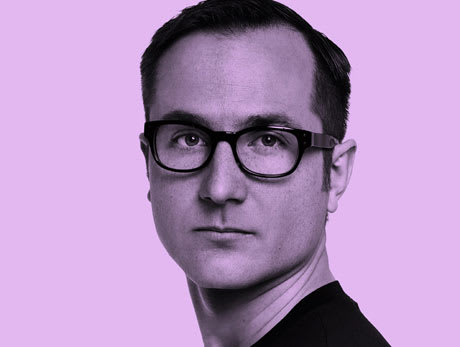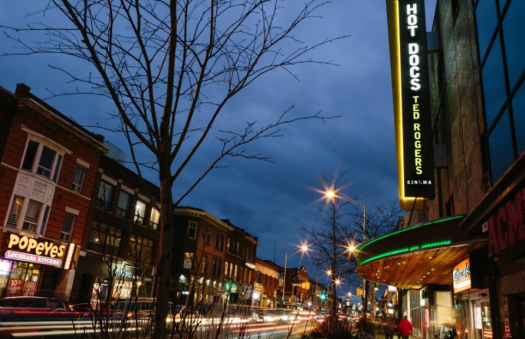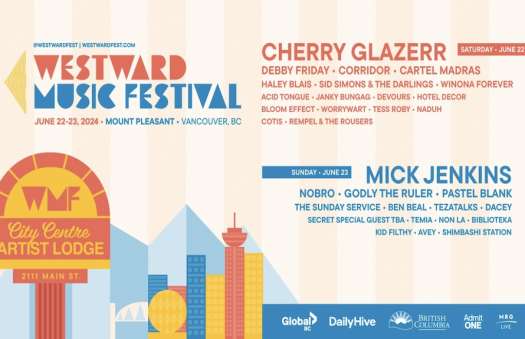To say that Tin Man's latest release is something of a departure immediately begs the question: "What is it exactly that Tin Man does?" Starting out producing acid house twelve-inches on the Finnish-based Keys of Life label, Californian-born Johannes Auvinen's subsequent work exists in a world between brooding singer-songwriter and strange, off-kilter dance music. Although far from dance floor material, it's informed by minimal techno and house. With Vienna Blue (a homage to his adopted home in the Austrian capital), Auvinen augments his electronics with a heavy dose of classical instrumentation, employing cello, violin and clarinet. Like all Tin Man albums, Vienna Blue takes a while to seep under your skin, slowly revealing more of itself upon each listen. Consisting of 22 short pieces, alternately instrumental and vocal-led numbers, ranging from less than a minute in length to almost seven minutes, it revisits the isolating and eerily off-key vocal style that dominated Scared in 2010. Never content to stay in one place and always eager to push his music, and the listener, into new and uncomfortable areas, Auvinen demonstrates a delicious disregard for current trends. This is outsider music that manages to remain accessible yet endlessly provoking.
Vienna Blue is a bit different from your previous work, being that it's heavily classical-based. How did this come about?
It was a few things coming together. I've now been in Vienna for five years, so it's a bit of a reflection on the time here, and the classical aspect really happened because I was working with some classical musicians. I was working at the World Expo in Shanghai in 2010 and we had to play music there for three months. I played together with a trio, so I was making some electronic textures, beats and things like that. We played a lot of cheesy Mozart and Strauss and sort of touristic advertising for Austria there, including Sound of Music medleys and Falco, but it also had some nice moments of improvisation, some weirder ambient things. I also enjoyed finding interpretations of Austrian Lieder, which is very sweet music from old Austria. It was me on the computer, basically, dubbing things out and, just like the record, cello, violin and clarinet.
What was the process working with this classical trio for the record like? Were they recorded as completed tracks or did you sample individual elements and piece them together later?
Most of the stuff was already planned out before. I had already composed all the electronic parts and spent a lot of time arranging them for the trio, so they just played it exactly how I had written it. I wrote everything on my computer with MIDI and having no idea how to do it, I figured out a way to make sheet music. I asked some people about how I should split things up and arrange things, but it was just an amateur version ― just print out some sheet music and hope they can play it! But it was easy; the musicians looked at the stuff and then one hour later we were recording everything. We recorded the whole album in one day in the studio. There are a few parts where there's improvisation, like in the track "Ok, Improvise," I just have the chords going underneath and they improvised over the top. Then in "Crow," there's some improvisation in that. Some of them are pieces that we would improvise at the Expo and based on those improvisations, I wrote some songs around ideas that came up there.
There are several notable musicians, like Jacaszek or Murcof, who also blend electronics or minimal techno with classical. Were any of these inspirations for this project?
Actually, Christian Fennesz was somehow a strange influence for a lot of the record, as the synthesis was all physical modelling, like Fennesz, but a totally different treatment. It's all percussive sounds and not blurred-out in the same way that the Fennesz tracks are, but synthesized in the same way and also maybe similar, in that it's using Lydian mode and Hungarian minor mode and stuff like that. Church modes, more romantic-sounding modes, melancholic, classically romantic sounding stuff ― Debussy uses those modes a lot. Basically, all the electronic sounds on the record are made with physical modelling synthesis ― all the stuff that sounds like harps or glassy plucked instruments. I use analog stuff all the time, so it was a departure to make something with a different kind of sound. Logic has a physical modelling synth built into it and I used that exclusively; it's called Sculpture.
The track titles are intriguing. There's a dark thread running through the lyrics and titles. Is there a thematic concept?
Yeah, melancholy in Vienna is one of them [laughs]. A couple of the titles are literary references, which I find happens pretty often with my records. They're usually a combination of some movies and literature that I'm interested in at the time when I'm making the record. "Tender is the Night" is a Fitzgerald novel I read and "What Will Happen To Us" is a reference to a Raymond Carver story, and those tracks directly talk about the stories they refer to. What Will Happen To Us is about a couple and the guy loses his job and he doesn't know what to do, so he's just sitting on the couch in his house and his wife is sort of tripping-out because the situation is becoming more macabre and surreal. He's not moving from the couch at all and eventually the refrigerator breaks and everything is falling apart and at some point one of them asks, "I wonder what's going to happen to us next?" The feeling is basically that they have no control over what's going to happen, as if they have a sort of dark destiny. It's depression, but also I like the political bent; it's sort of like Foucault ― they are realising that actually maybe they are not responsible for bad things happening in their life. It's actually just like they're the victims of the fate bestowed upon them.
Do you think that's true? For example, with the current economic situation, you have a certain amount of control, but you're also at mercy of the job market and market forces.
I think that actually what struck me about the story and why I wanted to talk about it is reflecting on the crisis and also this American idea of just hating poor people. Of always not wanting to face the fact that more people are poor all the time and always being like, "Oh, come on, just pull yourselves up by your bootstraps. If you fail it's your fault." While the proportion of people without jobs and the unemployment rate and poverty are just going through the roof, it's a subject that hurts people to talk about in that way. People wouldn't want to say, "What will happen to us?" "Well, we'll just make our own way." There's nothing to talk about, you know? We don't want Socialism; we don't want programs. If you're poor, it's your fault and you just suck it up and do better. That's why I like that quote. Maybe we should consider that: what will happen to us? We're not all 100-percent self-reliant and we can't all make our own way. Maybe the crisis is going to end next year or something like that and I'm not sure what the dialogue should be about. You have to consider it from different sides and I have the feeling that the crisis is just beginning; it's going to be at least another five years or something before things turn around [laughs].
Talking about the States, what made you move to Vienna? Most North American electronic musicians move to Berlin.
Well, the main thing is my girlfriend; I moved for love. She's lived here for 15 years. I've spent some time in Berlin before. Actually, when I was in college, I had the opportunity to go there in the summers. I spent five summers there, so I had some time in Berlin. I was happy to move here from L.A.; I thought it was cool, refreshing ― the opposite of L.A., in so many ways. It's a small city where things feel more urban and you can connect with people and music scenes and clubbing and goings on more easily. It was exciting to move here; I've been here five years. I like Vienna. There's enough going on. I was also excited to come to Vienna because I liked the music. I like Mega Records and Cheap Records I was kind of a fan of and I knew there was more of an experimental electronic music scene here, which is true. There's quite a lot of that here and there's the Vienna Wildstyle. People here have pretty diverse interests and seem to mix things up in a funny way and I like that. Here, as in other cities in Europe, electronic music and dance music can automatically survive because college-age students will always go to the clubs. There's much more interest in electronic music and dance music than what I saw in the States.
How would you classify your music? It's not exactly dance, but it comes from that world.
Yeah, Vienna Blue isn't dance music at all, but even when I'm making dance music it's never really banging stuff. I had been trying out some poppier or more popular music forms the past couple of years ― Tin Man as singer-songwriter rather than as acid house producer. It was trying out a different approach to that also, so I think it kind of comes towards pop again from a different angle. I think most of my stuff, even my dance music, is like dance music for the chill-out room or for the bedroom. Even the acid house twelve-inches are more like afterhours dance music.
Scared, in particular, is a great record for the end of the night; it sounds like it was recorded at three in the morning. It's got that feeling of, like, you've been up a bit too long and things aren't making sense anymore.
[Laughs] I haven't listened to it much since I made it, but with Wasteland, it felt like somehow I was getting all the demons out. Then with Scared, I was like, "Oh, there are still some more demons there, let's get out the rest of them!" And then Perfume is still kind of crooked, but it's much sweeter. In the end, they never really go away. This year, I have a lot more uplifting acid stuff that's going to come out. I have an album of acid that comes out in May and I'm doing more house and acid stuff this year. I also have a sample house EP that's coming out at the end of March and also a deep house EP that comes out in May. The sample house one, that's finished ― they already cut the record. Right now I'm finishing the acid album and the deep house record. I'm just doing the final mixes this month.
That's quite prolific! In addition to this record, we can expect a second album and at least two EPs this year?
Yeah, it's quite a bit. I also did a collaboration that will also come out in May that's more like Berlin techno with acid bass lines together with Cassegrain, a duo who are friends of mine, Berlin-based guys. All that stuff is going be out in May and I'm not sure what's going to happen with the rest of the year; I'll probably try and do more twelve-inches and EPs ― doing as much acid stuff as possible this year! I want to go back to that or present what I can of my version of acid things as something special. I'm going to be living in NYC for three to six months starting in September, so around that time I'll try to organise a tour or something ― October or November or something like that.
(Global A)Vienna Blue is a bit different from your previous work, being that it's heavily classical-based. How did this come about?
It was a few things coming together. I've now been in Vienna for five years, so it's a bit of a reflection on the time here, and the classical aspect really happened because I was working with some classical musicians. I was working at the World Expo in Shanghai in 2010 and we had to play music there for three months. I played together with a trio, so I was making some electronic textures, beats and things like that. We played a lot of cheesy Mozart and Strauss and sort of touristic advertising for Austria there, including Sound of Music medleys and Falco, but it also had some nice moments of improvisation, some weirder ambient things. I also enjoyed finding interpretations of Austrian Lieder, which is very sweet music from old Austria. It was me on the computer, basically, dubbing things out and, just like the record, cello, violin and clarinet.
What was the process working with this classical trio for the record like? Were they recorded as completed tracks or did you sample individual elements and piece them together later?
Most of the stuff was already planned out before. I had already composed all the electronic parts and spent a lot of time arranging them for the trio, so they just played it exactly how I had written it. I wrote everything on my computer with MIDI and having no idea how to do it, I figured out a way to make sheet music. I asked some people about how I should split things up and arrange things, but it was just an amateur version ― just print out some sheet music and hope they can play it! But it was easy; the musicians looked at the stuff and then one hour later we were recording everything. We recorded the whole album in one day in the studio. There are a few parts where there's improvisation, like in the track "Ok, Improvise," I just have the chords going underneath and they improvised over the top. Then in "Crow," there's some improvisation in that. Some of them are pieces that we would improvise at the Expo and based on those improvisations, I wrote some songs around ideas that came up there.
There are several notable musicians, like Jacaszek or Murcof, who also blend electronics or minimal techno with classical. Were any of these inspirations for this project?
Actually, Christian Fennesz was somehow a strange influence for a lot of the record, as the synthesis was all physical modelling, like Fennesz, but a totally different treatment. It's all percussive sounds and not blurred-out in the same way that the Fennesz tracks are, but synthesized in the same way and also maybe similar, in that it's using Lydian mode and Hungarian minor mode and stuff like that. Church modes, more romantic-sounding modes, melancholic, classically romantic sounding stuff ― Debussy uses those modes a lot. Basically, all the electronic sounds on the record are made with physical modelling synthesis ― all the stuff that sounds like harps or glassy plucked instruments. I use analog stuff all the time, so it was a departure to make something with a different kind of sound. Logic has a physical modelling synth built into it and I used that exclusively; it's called Sculpture.
The track titles are intriguing. There's a dark thread running through the lyrics and titles. Is there a thematic concept?
Yeah, melancholy in Vienna is one of them [laughs]. A couple of the titles are literary references, which I find happens pretty often with my records. They're usually a combination of some movies and literature that I'm interested in at the time when I'm making the record. "Tender is the Night" is a Fitzgerald novel I read and "What Will Happen To Us" is a reference to a Raymond Carver story, and those tracks directly talk about the stories they refer to. What Will Happen To Us is about a couple and the guy loses his job and he doesn't know what to do, so he's just sitting on the couch in his house and his wife is sort of tripping-out because the situation is becoming more macabre and surreal. He's not moving from the couch at all and eventually the refrigerator breaks and everything is falling apart and at some point one of them asks, "I wonder what's going to happen to us next?" The feeling is basically that they have no control over what's going to happen, as if they have a sort of dark destiny. It's depression, but also I like the political bent; it's sort of like Foucault ― they are realising that actually maybe they are not responsible for bad things happening in their life. It's actually just like they're the victims of the fate bestowed upon them.
Do you think that's true? For example, with the current economic situation, you have a certain amount of control, but you're also at mercy of the job market and market forces.
I think that actually what struck me about the story and why I wanted to talk about it is reflecting on the crisis and also this American idea of just hating poor people. Of always not wanting to face the fact that more people are poor all the time and always being like, "Oh, come on, just pull yourselves up by your bootstraps. If you fail it's your fault." While the proportion of people without jobs and the unemployment rate and poverty are just going through the roof, it's a subject that hurts people to talk about in that way. People wouldn't want to say, "What will happen to us?" "Well, we'll just make our own way." There's nothing to talk about, you know? We don't want Socialism; we don't want programs. If you're poor, it's your fault and you just suck it up and do better. That's why I like that quote. Maybe we should consider that: what will happen to us? We're not all 100-percent self-reliant and we can't all make our own way. Maybe the crisis is going to end next year or something like that and I'm not sure what the dialogue should be about. You have to consider it from different sides and I have the feeling that the crisis is just beginning; it's going to be at least another five years or something before things turn around [laughs].
Talking about the States, what made you move to Vienna? Most North American electronic musicians move to Berlin.
Well, the main thing is my girlfriend; I moved for love. She's lived here for 15 years. I've spent some time in Berlin before. Actually, when I was in college, I had the opportunity to go there in the summers. I spent five summers there, so I had some time in Berlin. I was happy to move here from L.A.; I thought it was cool, refreshing ― the opposite of L.A., in so many ways. It's a small city where things feel more urban and you can connect with people and music scenes and clubbing and goings on more easily. It was exciting to move here; I've been here five years. I like Vienna. There's enough going on. I was also excited to come to Vienna because I liked the music. I like Mega Records and Cheap Records I was kind of a fan of and I knew there was more of an experimental electronic music scene here, which is true. There's quite a lot of that here and there's the Vienna Wildstyle. People here have pretty diverse interests and seem to mix things up in a funny way and I like that. Here, as in other cities in Europe, electronic music and dance music can automatically survive because college-age students will always go to the clubs. There's much more interest in electronic music and dance music than what I saw in the States.
How would you classify your music? It's not exactly dance, but it comes from that world.
Yeah, Vienna Blue isn't dance music at all, but even when I'm making dance music it's never really banging stuff. I had been trying out some poppier or more popular music forms the past couple of years ― Tin Man as singer-songwriter rather than as acid house producer. It was trying out a different approach to that also, so I think it kind of comes towards pop again from a different angle. I think most of my stuff, even my dance music, is like dance music for the chill-out room or for the bedroom. Even the acid house twelve-inches are more like afterhours dance music.
Scared, in particular, is a great record for the end of the night; it sounds like it was recorded at three in the morning. It's got that feeling of, like, you've been up a bit too long and things aren't making sense anymore.
[Laughs] I haven't listened to it much since I made it, but with Wasteland, it felt like somehow I was getting all the demons out. Then with Scared, I was like, "Oh, there are still some more demons there, let's get out the rest of them!" And then Perfume is still kind of crooked, but it's much sweeter. In the end, they never really go away. This year, I have a lot more uplifting acid stuff that's going to come out. I have an album of acid that comes out in May and I'm doing more house and acid stuff this year. I also have a sample house EP that's coming out at the end of March and also a deep house EP that comes out in May. The sample house one, that's finished ― they already cut the record. Right now I'm finishing the acid album and the deep house record. I'm just doing the final mixes this month.
That's quite prolific! In addition to this record, we can expect a second album and at least two EPs this year?
Yeah, it's quite a bit. I also did a collaboration that will also come out in May that's more like Berlin techno with acid bass lines together with Cassegrain, a duo who are friends of mine, Berlin-based guys. All that stuff is going be out in May and I'm not sure what's going to happen with the rest of the year; I'll probably try and do more twelve-inches and EPs ― doing as much acid stuff as possible this year! I want to go back to that or present what I can of my version of acid things as something special. I'm going to be living in NYC for three to six months starting in September, so around that time I'll try to organise a tour or something ― October or November or something like that.




